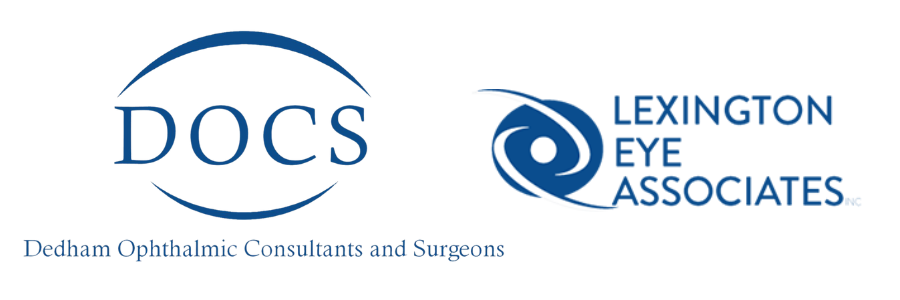Cataract Surgery
Cataract Surgery today is an out-patient day surgery procedure. Over half of the surgeons in the United States perform cataract surgery in an ambulatory surgery setting. The surgeons of Dedham Ophthalmic Consultants and Lexington Eye Associates perform most of their cataract surgeries at Surgisite Boston located in Waltham MA.
Prior to Surgery
Individuals who have been diagnosed with a cataract are referred to cornea specialists for a comprehensive Cataract consultation. This is an extensive visit that includes a dilated eye exam so that our surgical staff can examine your retina, measure your corneal thickness. and make an informed decision regarding the overall health of your eye. It is highly recommended to have a friend or family member available to escort you to and from your exam.
An equally extensive physical examination is also required to undergo cataract surgery. This is an examination to get you medically cleared to undergo cataract surgery. The staff at Dedham Ophthalmic Consultants and Lexington Eye Associates work with our patients to help coordinate medical clearance, including physical examinations and other required tests such as bloodwork, electrocardiogram or echocardiograms.
Surgisite Waltham
Surgisite Boston is a modern state-of-the-art ambulatory surgery center, conveniently located off several major highways. Surgisite surgical staff is comprised of Board-Certified Ophthalmologists who have been trained in the most technologically advanced surgical procedures, as well as Anesthesiologists who specialize in the administration of anesthesia. Combined, the highly trained staff ensures the most optimal results for patients who elect to have their cataract surgery performed at Surgisite.
Day of Surgery
Prior to your scheduled outpatient cataract procedure, a light meal may be eaten on the morning of surgery. Whereas a light sedative is required, and your vision will be blurry for a few hours following your procedure, patients are required to have transportation to and from Surgisite. Patients are also asked not to wear eye make-up on the day of surgery. Your Primary Care physician will inform you regarding medications on the day of surgery.
Surgical Procedure
The procedure known as phacoemulsification is performed under a light sedative and local anesthesia. The natural lens is removed and replaced with an intraocular lens implant. Recent developments include multifocal implants and implants to correct astigmatism which will allow you to be less dependent on eyeglasses.
There are many intraocular lens options available for patients. There are multi-focal lenses, toric lenses and the traditional monfocal lens implant. For some patients technology advances have made it possible to select a lens that will allow the patient to see at all distances, near and far, after cataract surgery. This advanced lens may make one less dependent on glasses or contact lenses than ever before. Only your Ophthalmologist can tell you which lens is right for you.

Basic Monofocal Lens
With single vision lens implants, there is a very high likelihood that you will need glasses for most near-vision activities after surgery, even if you do not wear near-vision glasses before surgery. These activities include such things as reading, applying makeup, shaving, sewing, reading your watch, dialing a cell phone, and baiting fishhooks. Medicare and most private insurance carriers will pay 80% of your cataract surgery and the monofocal lens. This is considered basic coverage.

Acrysof® Toric Lens
The Acrysof® Toric Lens is specifically designed to address those who have a significant amount of astigmatism. In years past, cataract surgery removed the cataract but a patient with high astigmatism still required glasses for near and distance vision. The design of the Acrysof® Toric lens makes it possible to reduce or eliminate astigmatism and significantly improve uncorrected distance vision. There is and additional cost for this lens implant.

Acrysof® Restor Lens
New technology implants, such as Acrysof® Restor®, and the AMO® Technis® are designed to provide a full range of vision- near, far, and everything in between. Medicare and private insurance provide basic coverage and allow you to pay for the upgrade, if you choose to do so. Based on FDA clinical data, over 80% of patients never need glasses again for any activities. Those who do need glasses need them only for very specific tasks. The goal of the Restor® lens is to allow you to live a spectacle-free life, to see things near and far without glasses. There is an additional cost for this technology.
